The phrase “don’t bite the hand that feeds you” is a classic piece of advice for a reason. It’s a simple, unspoken contract: if someone is helping you, the least you can do is not actively try to ruin their life. It’s a pretty low bar for human decency…
But what happens when the person you’re about to save with a piece of your own liver doesn’t just bite the hand, but tries to sever it completely? One man was preparing for a selfless, life-saving surgery. But just days before the procedure, his ‘thank you’ came in the form of a police officer at his door.
More info: Reddit
The decision to give a life-saving gift is built on trust, but what happens when that trust is shattered?

Image credits: DC Studio / Freepik (not the actual photo)
A man selflessly agreed to donate a piece of his liver to his partner’s ailing boss
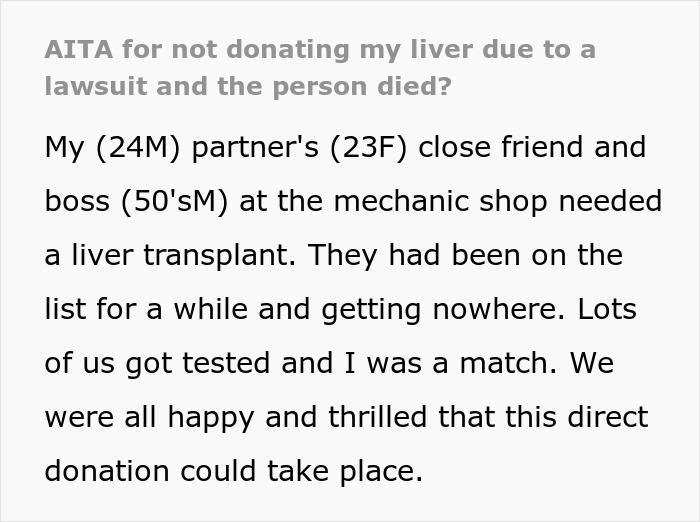
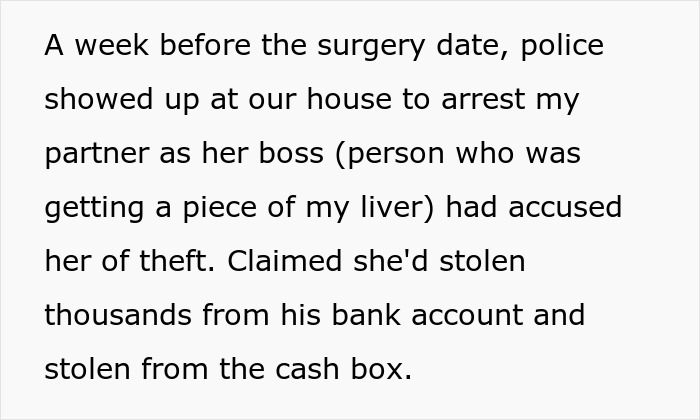



Image credits: andranik.h90 / Freepik (not the actual photo)
But just one week before the surgery, his partner was arrested on false theft charges filed by the boss’s family
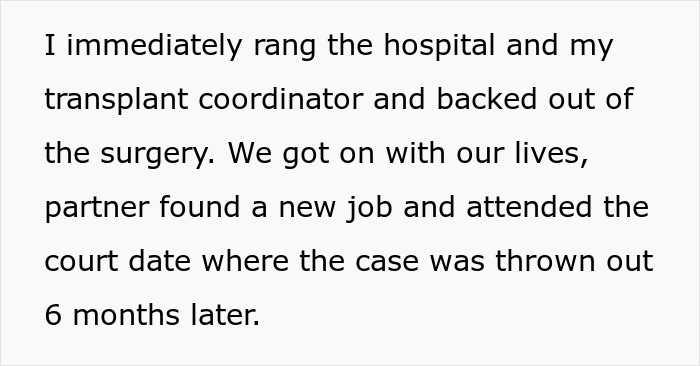
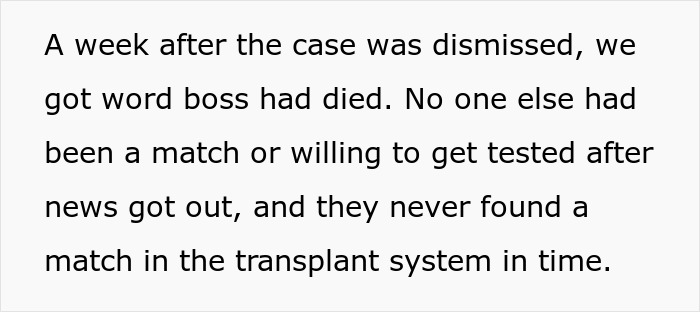

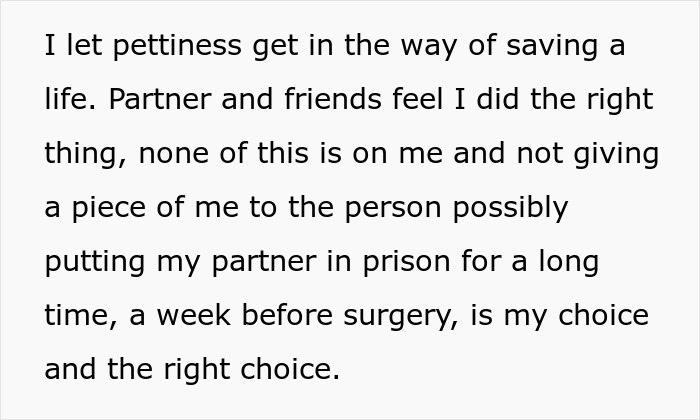

Image credits: Getty Images / Unsplash (not the actual photo)
In response, the man immediately called the hospital and canceled the life-saving transplant
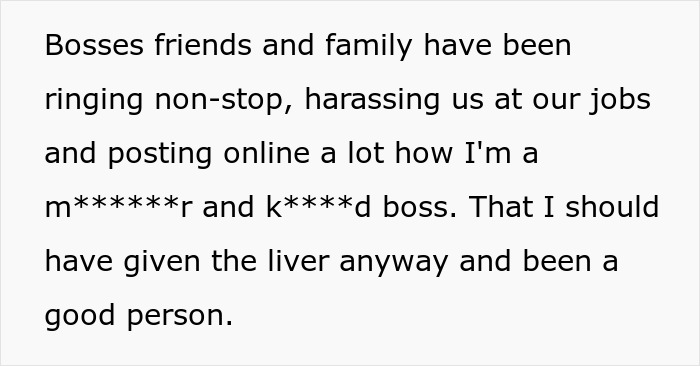
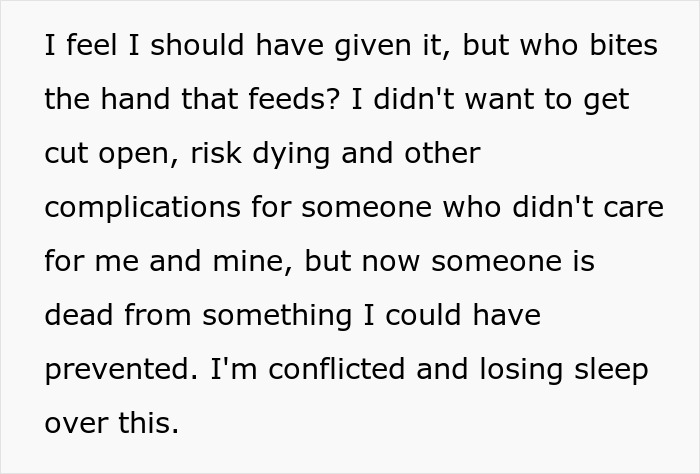


Image credits: EyeEm / Freepik (not the actual photo)
Months later, after the charges were dropped, the boss died, having never found another donor
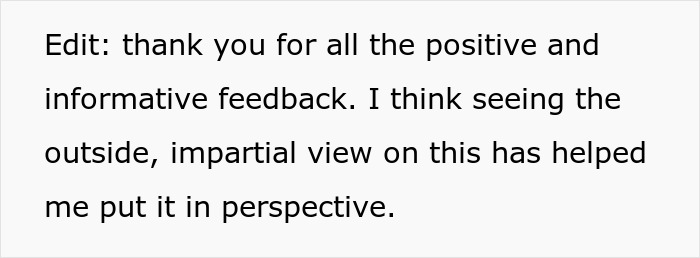
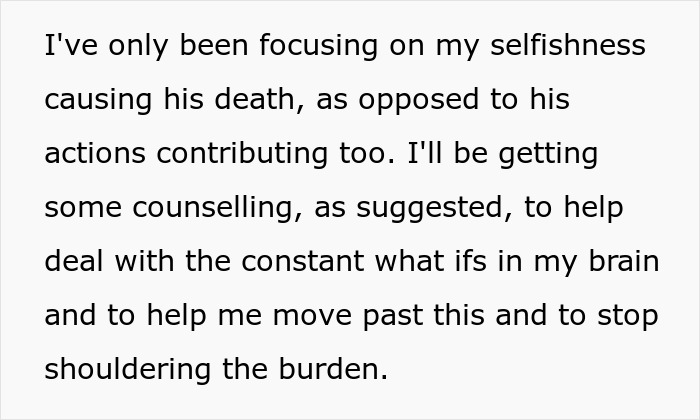

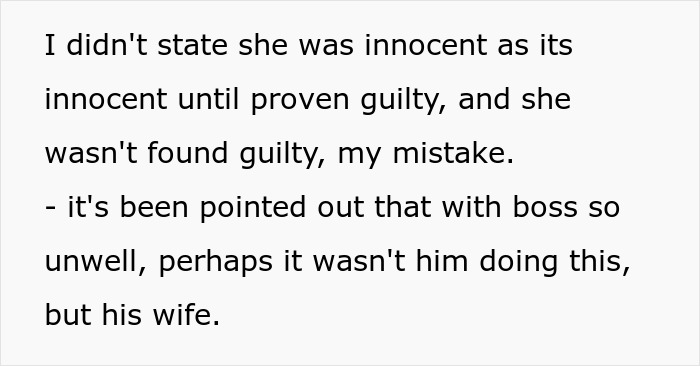

Image credits: Drazen Zigic / Freepik (not the actual photo)
It also came to light that it was the boss’s wife who had been stealing the money and tried to frame the donor’s girlfriend
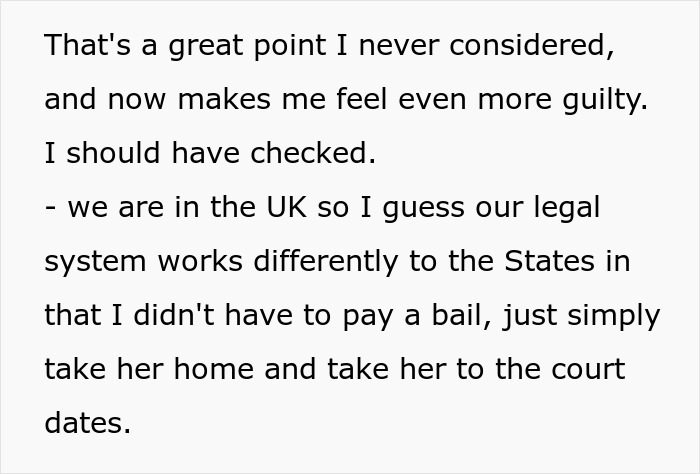

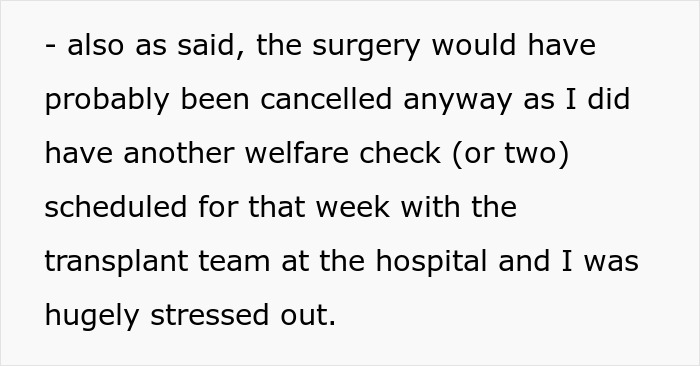

Image credits: LiverDilemma2019
The man has been harassed and called slanderous names by the family of the deceased, but has also been consumed by guilt over his decision
This story starts with an act of incredible generosity. The OP was about to become a real-life hero by donating a piece of his liver to his partner’s ailing boss, a selfless act that was set to save the man’s life. The surgery was scheduled, everyone was thrilled, and it seemed like a beautiful story of community and kindness was about to unfold.
But just one week before the surgery, the ‘thank you’ came in the form of flashing blue lights. The police showed up to arrest his partner, based on a flimsy accusation of theft from the very man who was about to receive a piece of the OP’s liver. The evidence? Grainy CCTV footage of her doing her job. The police themselves were so unconvinced they basically told the couple it seemed like a scam.
Our hero’s response was immediate and absolute: he called the hospital and canceled the surgery. Six months later, the bogus case against his partner was unceremoniously thrown out of court. But just a week after that, the boss died, having never found another donor. Now, the narrator is said to have caused the man’s death by the boss’s friends and family, a relentless harassment campaign that has him guilt-ridden.
This is where the narrator is now trapped, consumed by a crushing guilt and wondering if he let pettines cause the boss’s death. But the story has a crucial, heartbreaking twist he didn’t consider at the time: it was the boss’s wife who was the real thief and had set his partner up. His “selfish” choice turned out to be the right one for him after all.

Image credits: Getty Images / Unsplash (not the actual photo)
The OP’s decision to become a living liver donor was an act of extraordinary generosity, a fact that is often understated. This isn’t a minor procedure; it’s a “major surgery” that, as Johns Hopkins Medicine explains, can last four to six hours and involves a multi-day hospital stay and a recovery period of “several weeks to months.”
He was offering a piece of his body and months of his life to save someone, a massive sacrifice considering that, according to the UK’s NHS, around 650 people are on the waiting list for a liver transplant at any given time.
Crucially, the decision to donate an organ is a gift, not a contract, and donors have the absolute right to change their minds at any point, for any reason. As the National Kidney Foundation explains in the context of living donation, the entire process is voluntary. Transplant programs have strict protocols and donor advocates in place to ensure that a potential donor is not being coerced.
They should feel 100% comfortable with their decision, right up to the moment of surgery. The narrator’s decision to withdraw his consent, especially under such extreme duress, is a right that is built into the ethical framework of organ donation.
Organ donation is built on a foundation of goodwill and trust. By falsely accusing the donor’s partner of a crime just days before the surgery, the recipient’s family obliterated that foundation. In fact, the immense psychological distress caused by the false arrest would have almost certainly led the hospital’s transplant team to postpone or cancel the surgery themselves to protect the donor’s welfare.
Do you agree that his choice wasn’t “pettiness” but rather a rational response to an act of profound betrayal? Let us know what you think in the comments section!
The internet unanimously agreed that he was not to blame, and the family only had themselves to blame
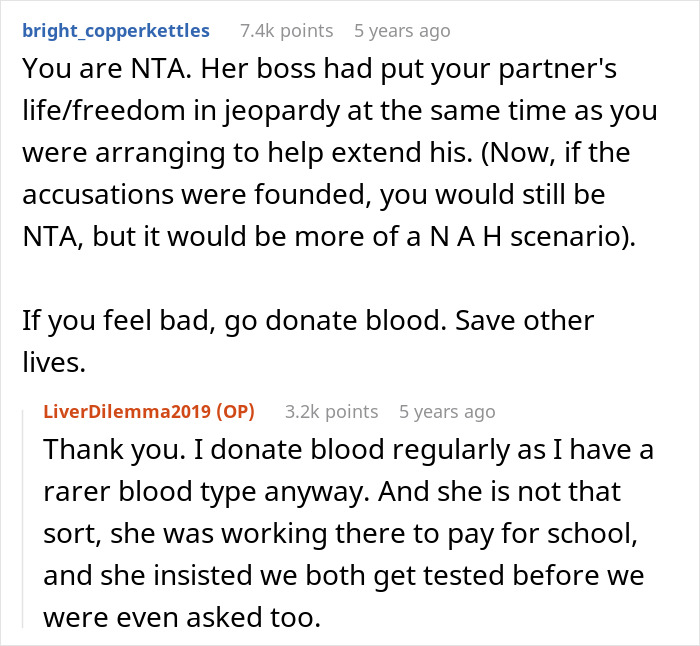
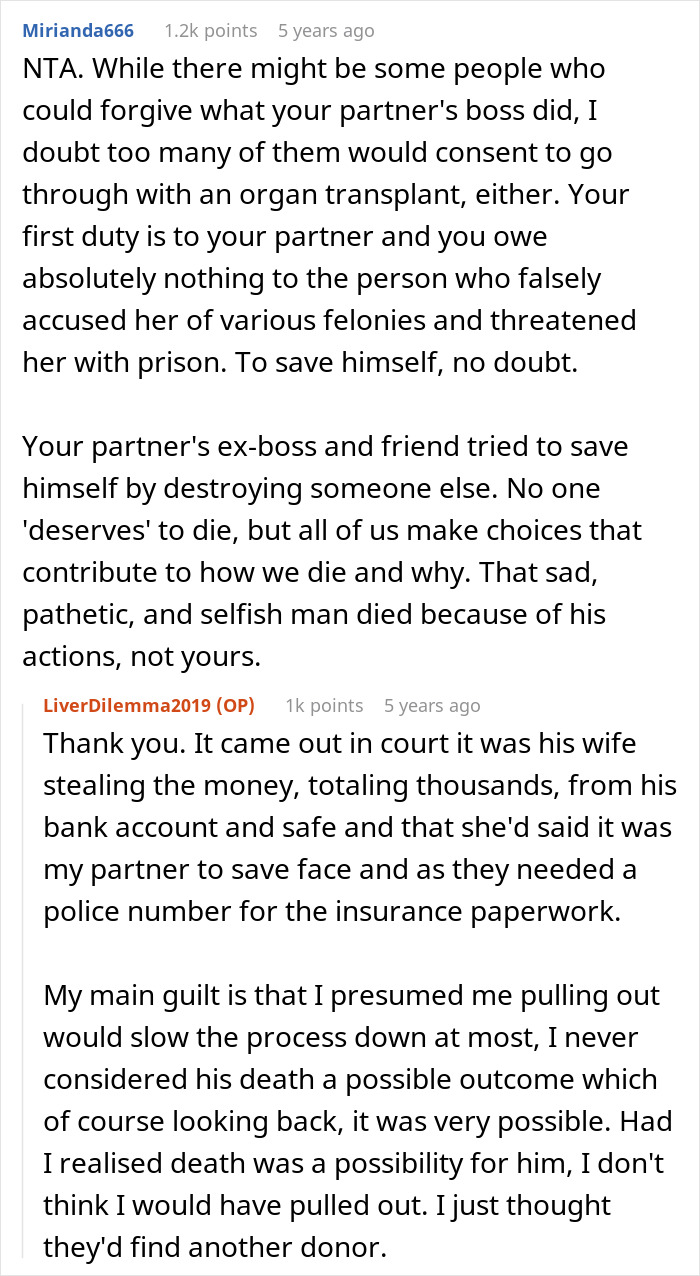
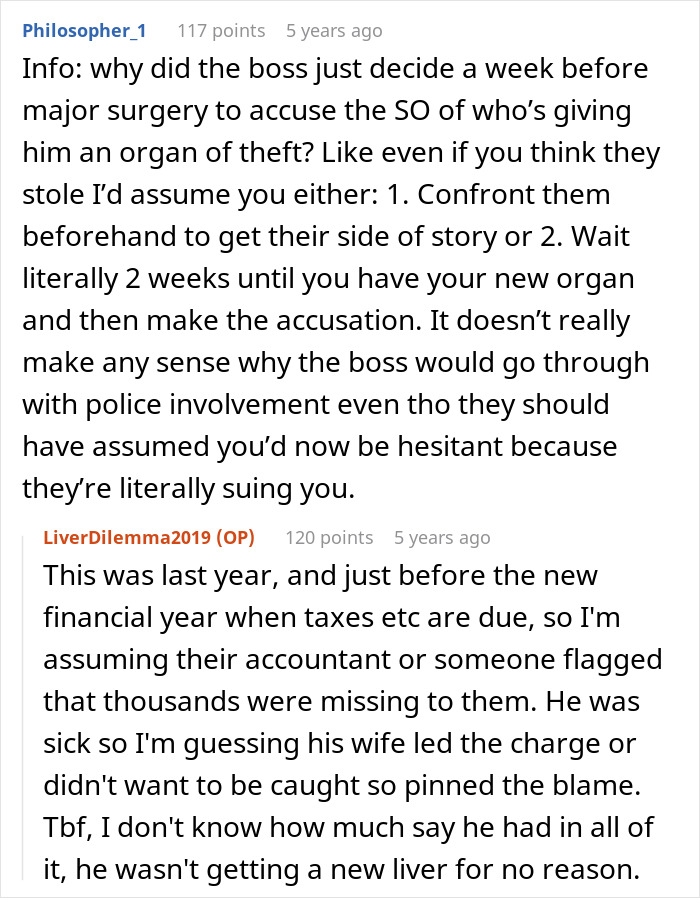
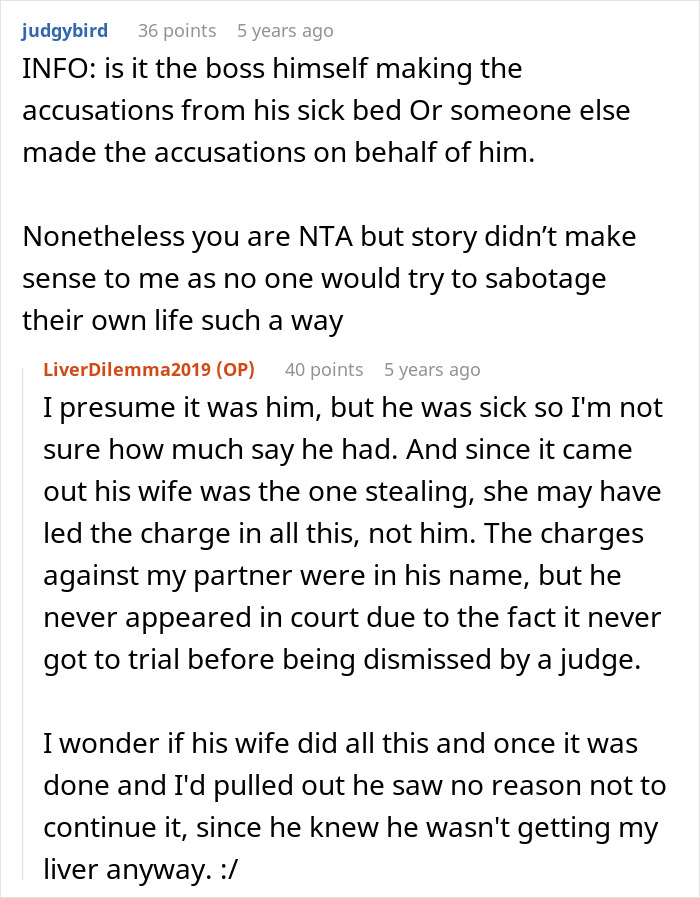

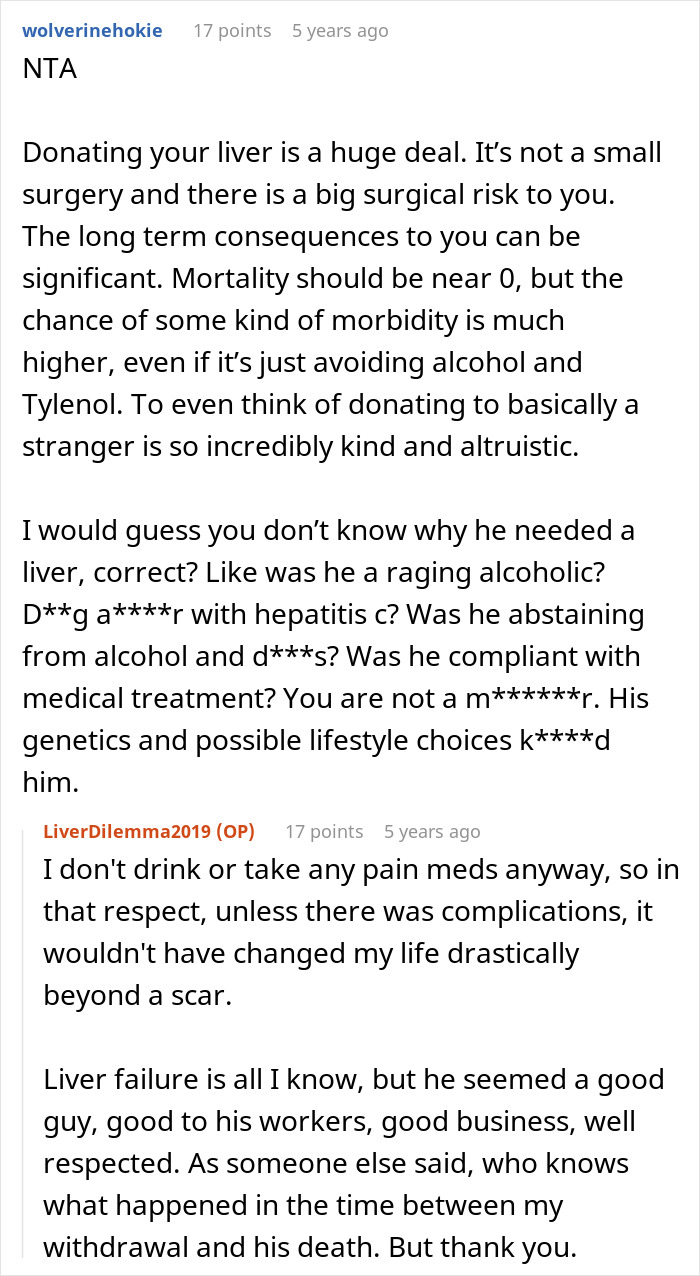

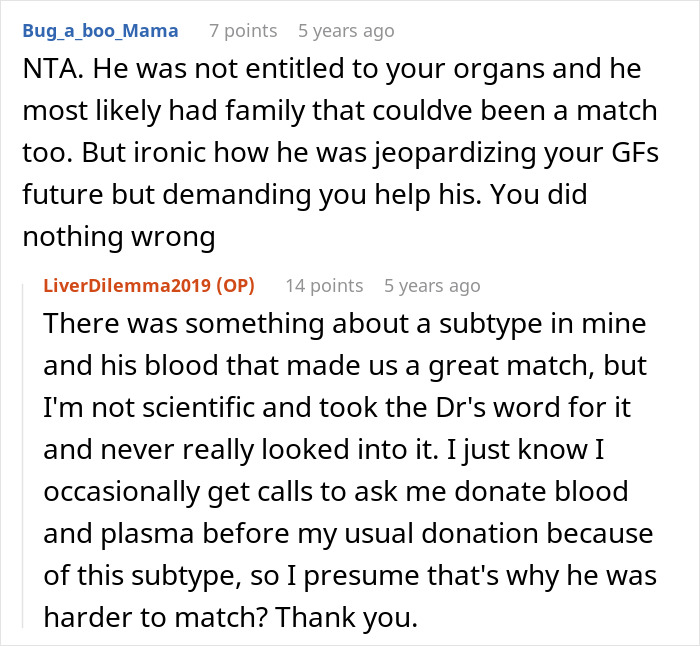
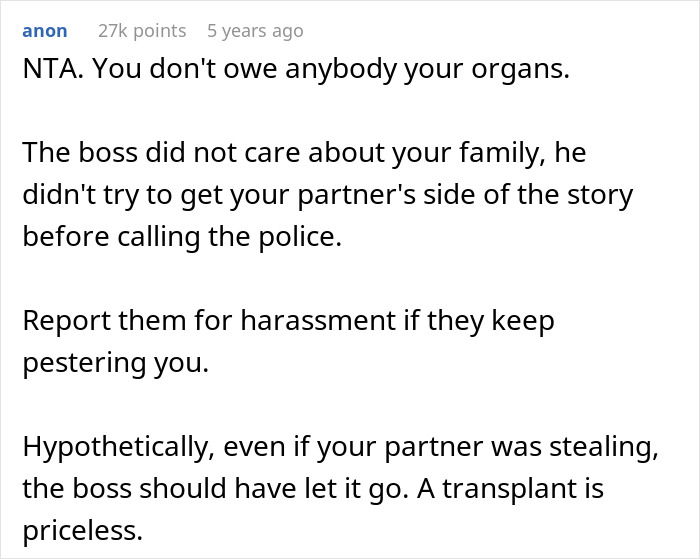

 Follow Us
Follow Us





